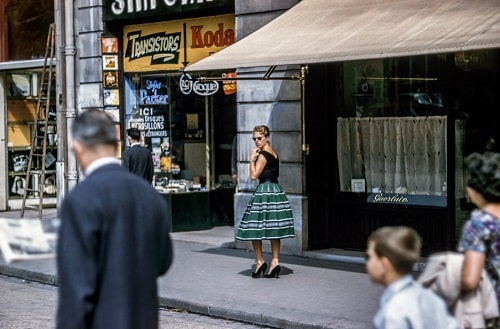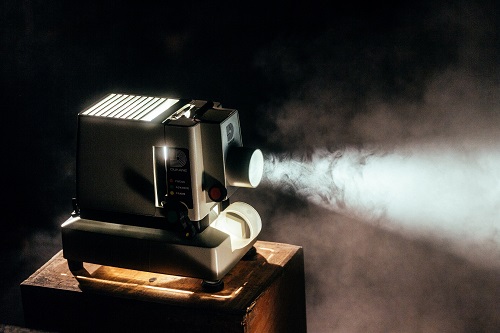Ridley Scott’s latest epic, “Napoleon,” has been creating a buzz in the film industry since its announcement. The film stars Joaquin Phoenix as the French emperor and Vanessa Kirby as his wife Josephine Bonaparte. The plot of the film follows Napoleon’s rise to power and his eventual downfall.
The four-hour-long film has been highly anticipated by both history buffs and movie enthusiasts alike. The New York Times describes the film as “a lumpy, grumpy little man,” while Mashable praises Ridley Scott’s boldness in transforming historical moments into films. The Guardian notes that the combat sequences in the film are impressive and pull the audience in.
Overall, “Napoleon” is a grand yet uneven epic that showcases Ridley Scott’s prowess as a director. With Joaquin Phoenix’s mesmerizing performance and the film’s stunning visuals, it is definitely a must-watch for fans of historical dramas.
Director’s Vision
Ridley Scott’s vision for “Napoleon” was to bring the legendary French emperor’s story to life with a fresh perspective. He wanted to show the audience the human side of Napoleon, not just the military genius. Scott’s aim was to create a balance between the epic battles and the intimate moments, which he achieved by focusing on the relationships between the characters.
Scott’s attention to detail is evident in every scene of “Napoleon.” He worked closely with the production team to create a historically accurate portrayal of the era. The costumes, set design, and props all reflect the period, which adds to the authenticity of the film. Scott’s use of lighting and camera angles also adds to the overall mood of the film.
One of the unique aspects of Scott’s vision for “Napoleon” is his portrayal of the emperor’s relationships. In the film, Napoleon is shown as a man torn between his love for his wife, Josephine, and his duty to France. Scott wanted to explore the emotional side of Napoleon’s life, which is often overlooked in historical accounts.
Overall, Ridley Scott’s vision for “Napoleon” is a fresh take on the legendary French emperor. He successfully balances the epic battles with the intimate moments, creating a historically accurate and emotionally engaging film.
Historical Accuracy
Ridley Scott’s “Napoleon” is an epic film that tells the story of the rise and fall of the French emperor. While the movie is based on historical events, there are some inaccuracies that have been pointed out by historians.
One of the main inaccuracies in the film is the portrayal of Napoleon as a romantic hero. In reality, Napoleon was a ruthless dictator who was responsible for the deaths of millions of people. The film also takes some liberties with the timeline of events, compressing several years into a few months for dramatic effect.
Despite these inaccuracies, the film does a good job of capturing the spirit of the time period. The costumes and sets are historically accurate, and the battle scenes are well choreographed. The film also accurately portrays the harsh realities of war, including the toll it takes on soldiers and civilians alike.
Overall, while “Napoleon” may not be entirely historically accurate, it is an entertaining and engaging film that is sure to delight fans of historical epics.
Casting Choices
Main Characters
Ridley Scott’s casting choices for the main characters in “Napoleon” were spot-on. Joaquin Phoenix delivers a powerful performance as the titular character, bringing depth and complexity to the role of the ambitious and charismatic French emperor. Vanessa Kirby is equally impressive as Joséphine de Beauharnais, Napoleon’s first wife and empress. Kirby’s portrayal of Joséphine is nuanced and sympathetic, highlighting the character’s intelligence, wit, and vulnerability.
Supporting Cast
The supporting cast in “Napoleon” is equally strong, with Tahar Rahim, Mark Bonnar, Rupert Everett, and Youssef Kerkour all delivering memorable performances. Rahim is particularly noteworthy as Napoleon’s loyal friend and military advisor, while Bonnar brings a sense of gravitas to the role of Charles Maurice de Talleyrand-Perigord, Napoleon’s foreign minister. Everett and Kerkour provide some much-needed comic relief as two of Napoleon’s bumbling advisors.
Overall, the casting choices in “Napoleon” are a testament to Ridley Scott’s skill as a director. By assembling a talented and diverse cast, Scott was able to bring the story of Napoleon Bonaparte to life in a way that is both engaging and authentic.
Cinematography
Ridley Scott’s “Napoleon” is a visually stunning film that showcases the director’s knack for creating epic and grandiose landscapes. The cinematography in this movie is top-notch, with sweeping shots of the French countryside and intricate battle sequences that leave the viewer breathless.
One of the standout features of the cinematography in “Napoleon” is the use of color. The film is shot in muted tones, which gives it a sense of authenticity and historical accuracy. The use of natural light is also impressive, with many scenes shot at dawn or dusk to create a sense of intimacy and realism.
The battle scenes in “Napoleon” are some of the most impressive in recent memory. The camera work is frenetic and dynamic, with a mix of handheld shots and sweeping crane shots that give the viewer a sense of the chaos and confusion of battle. The use of slow motion during certain key moments is also effective, creating a sense of tension and drama.
Overall, the cinematography in “Napoleon” is a triumph. It is a testament to Ridley Scott’s skill as a director and his ability to create a visually stunning and emotionally resonant film. The use of color, natural light, and dynamic camera work all contribute to the movie’s sense of grandeur and epic scope.
Music and Sound Design
The music and sound design in Ridley Scott’s “Napoleon” are exceptional and work together to create an immersive experience for the audience. The film’s score, composed by Hans Zimmer, is a blend of classical and modern music that perfectly captures the epic nature of the story. Zimmer’s use of percussion and brass instruments adds a sense of grandeur to the film’s battle scenes, while his use of strings and woodwinds creates a more intimate atmosphere during quieter moments.
The sound design in “Napoleon” is equally impressive. The film’s sound effects, which range from the clashing of swords to the roar of cannon fire, are expertly crafted and help to bring the film’s battle scenes to life. The sound design also plays an important role in creating a sense of place, with the film’s various locations each having their own unique soundscape.
One particularly impressive aspect of the film’s sound design is its use of silence. During certain scenes, such as when Napoleon is contemplating his next move on the battlefield, the sound drops out entirely, leaving the audience in complete silence. This creates a sense of tension and anticipation, and allows the audience to fully immerse themselves in the moment.
Overall, the music and sound design in “Napoleon” are a testament to the talent and skill of the film’s creative team. They work together seamlessly to create a truly immersive experience for the audience, and help to elevate the film to new heights.
Costume and Set Design
Ridley Scott’s “Napoleon” is a visual feast for the eyes, thanks to the impressive costume and set design. The film’s production team spared no expense in creating a historically accurate depiction of Napoleon Bonaparte’s world.
The costumes are a standout feature of the film, with each character’s attire being meticulously crafted to reflect the time period. The attention to detail is evident in every scene, from the ornate military uniforms to the elegant dresses worn by the women. The costumes not only add to the film’s authenticity, but they also help to bring the characters to life, giving them a sense of personality and individuality.
The set design is equally impressive, with each location feeling like a fully realized world. From the grandeur of the Palace of Versailles to the harsh realities of the battlefield, every environment is crafted with care and attention to detail. The sets not only serve as a backdrop for the action, but they also help to establish the film’s tone and mood.
Overall, the costume and set design in “Napoleon” are a testament to the skill and dedication of the film’s production team. Their hard work and attention to detail have resulted in a visually stunning film that transports the audience back in time to the world of Napoleon Bonaparte.
Narrative and Pacing
Ridley Scott’s “Napoleon” is an ambitious historical epic that tells the story of Napoleon Bonaparte, one of the most famous and controversial figures in European history. The film covers the major events of Napoleon’s life, from his early years as a military cadet to his rise to power as the Emperor of France.
The narrative is well-structured and follows a linear timeline, making it easy for viewers to follow along. The pacing of the film is deliberate, with Scott taking his time to establish the characters and their motivations before diving into the action. This approach allows the audience to become invested in the story and the characters, making the film’s climactic moments all the more impactful.
One of the strengths of “Napoleon” is its attention to historical accuracy. While some liberties are taken with the story, the film does an excellent job of capturing the spirit of the time period. The costumes, sets, and locations all feel authentic, transporting the audience back to early 19th century Europe.
Overall, the narrative and pacing of “Napoleon” are strong, with Ridley Scott delivering an engaging and well-crafted historical epic. Fans of the genre will appreciate the attention to detail and the film’s commitment to historical accuracy.
Critical Reception
Ridley Scott’s “Napoleon” has received mixed reviews from film critics. While some have praised the film’s impressive combat sequences and Joaquin Phoenix’s mesmerizing portrayal of the French emperor, others have criticized the movie for being too long and lacking depth.
In a review for The Guardian, Wendy Ide called the film a “sturdy epic” and praised the combat sequences for pulling the audience into the action. However, she also noted that the film “only fully comes alive on the battlefield” and criticized the lack of character development.
The Arts Desk’s Graham Fuller also found fault with the film’s lack of depth, writing that “Sir Ridley Scott’s historical epic is wide but not deep.” He praised Phoenix’s performance but felt that the film failed to fully explore the complexities of Napoleon’s character.
Manohla Dargis of The New York Times was similarly critical of the film’s portrayal of Napoleon, describing him as a “lumpy, grumpy little man.” She did, however, praise Phoenix’s performance as “oddly mesmerizing.”
Despite these criticisms, some reviewers were more positive about the film. Mashable’s Angie Han called “Napoleon” a “fascinating” and “bold” historical epic, while also acknowledging its flaws.
Overall, it seems that “Napoleon” is a film that has divided critics. While some have praised its impressive combat sequences and Phoenix’s performance, others have criticized its lack of depth and character development.
Public Reception
Ridley Scott’s Napoleon has been met with mixed reviews from both critics and audiences alike. While some praised the film’s stunning visuals and epic battle scenes, others criticized its lack of character development and historical accuracy.
According to The Guardian, the combat sequences in the film “pull you right in,” but both the director and lead actor Joaquin Phoenix failed to give the necessary depth to their characters. On the other hand, Mashable praised the film’s boldness and called it a “fascinating tear” from Ridley Scott.
Despite the mixed reviews, many viewers have appreciated the film’s attention to detail and beautiful cinematography. The movie has been praised for its accurate portrayal of the Napoleonic era, with costumes and sets that transport viewers back in time.
Overall, Napoleon has been a polarizing film that has sparked many debates among moviegoers. While some may find it lacking in certain areas, others have praised it for its grandeur and historical accuracy.
Conclusion
In conclusion, Ridley Scott’s “Napoleon” is a historical epic that delivers on some levels. The film features impressive battle scenes and stunning cinematography that transport the viewer back in time to the Napoleonic era. The performances by Joaquin Phoenix and Vanessa Kirby are also noteworthy, adding depth and emotion to their respective roles.
However, the film is not without its flaws. Some critics have noted that the pacing can be slow at times, and the plot can be convoluted. Additionally, the film’s runtime of over three hours may be too long for some viewers.
Despite these criticisms, “Napoleon” is a must-see for fans of historical epics and Ridley Scott’s work. The film’s attention to detail and commitment to historical accuracy make it a standout in the genre. Overall, “Napoleon” is a well-crafted film that is sure to entertain and educate audiences alike.



 RELATED POSTS
RELATED POSTS





0 Comments